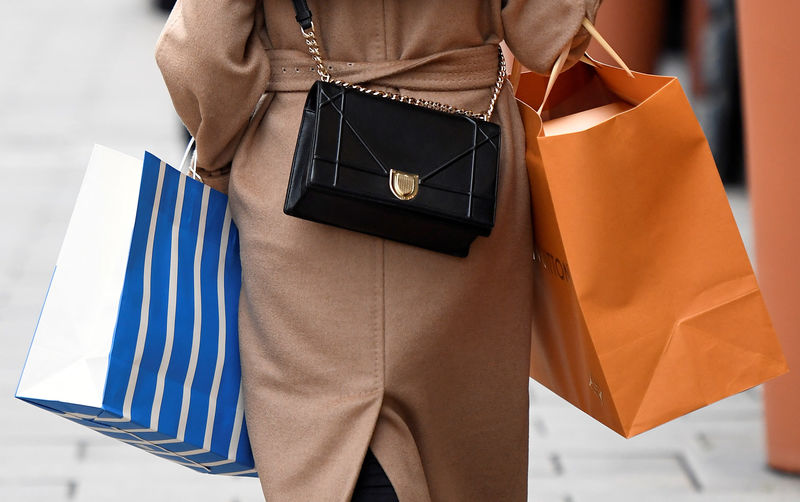Investing.com’s stocks of the week
By Michael Nienaber and Joseph Nasr
BERLIN (Reuters) - The mood among German shoppers dipped for the second month in a row heading into September as income expectations fell, a survey showed on Wednesday, casting doubt on the strength of a consumer-led upswing.
Household expenditure was one of the main growth drivers in Europe's largest economy in the first half of 2018, together with state spending and investments in construction.
The GfK research institute said its consumer sentiment indicator, based on a survey of around 2,000 Germans, fell to 10.5 from 10.6 a month earlier. Analysts polled by Reuters had forecast an unchanged reading.
"While economic expectations improved, income expectations and the propensity to buy declined a bit," GfK researcher Ralf Buerkl said. All sub-indicators remained at a relatively high level, however.
He linked the dip in income expectations to a rise in energy prices that has propelled German inflation above 2 percent.
"Based on the continuing low interest (rate) level, it might be obvious to some consumers that savings are increasingly losing value due to inflation," Buerkl said.
"A further increase in inflation would certainly dampen the consumer climate."
The Federal Statistics Office said on Wednesday that rising prices, especially of energy and food, had offset salary increases granted to 17 million employees under collective bargaining agreements in the second quarter, when inflation was 2 percent.
MORE FISCAL STIMULUS NEEDED?
Since taking office in March, the coalition government has been looking at ways to boost consumers' purchasing power.
It approved 10 billion euros a year of tax relief for families in June and on Tuesday agreed measures to stabilize the level of retirement pensions and reduce workers' contributions to the unemployment insurance system.
ING Diba analyst Carsten Brzeski estimated the measures constituted a combined fiscal stimulus of some 0.4 percent of national output.
But given the government has enjoyed a budget surplus since 2014, it had the means to inject a larger stimulus into the economy, notably via higher investments in infrastructure, digitization and programs to bring more women into the workforce.
The government agreed to cut the unemployment insurance contribution rate by 0.5 percentage point to 2.5 percent starting in 2019. But the health ministry wants to raise contributions to the nursing care insurance system by the same amount.
Still, economists expect consumption to continue supporting the economy as exports wane.
The GfK survey found that the propensity to buy remained relatively high, Buerkl said, pointing to a booming labor market, record-low unemployment and increased job security.
